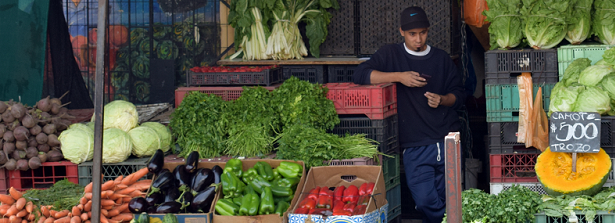Kick-off workshop GCP project HortEco

The project “Horticultural food systems in Chile and Uruguay (HortEco)” was awarded funds in the third Call of the Global Challenges Porgramme. Consortium partners came together for a kick-off workshop from December 19 till 21, 2016, at the Pontifical Catholic University of Valparaíso in Quillota, Chile.
The objectives of the kick-off workshop were:
- Validation and agreement of the project proposal;
- Co-design and agreement on the main framework for analysing and innovating vegetable food systems in Chile and Uruguay
The following outputs were obtained:
- Buy in from all partners into the project and ownership of the main analytical framework;
- Articulated Theory of Change (ToC) with assumptions for each of the two countries;
- Qualitative and quantitative indicators that can be used to measure progress as part of annual reflection meetings;
- Meeting report with outcomes.
Please download the report of the kick-off meeting (PDF).
Please download the PowerPoint presentation of the kick-off meeting (PDF, in Spanish).
About the HortEco project
Development of ecologically and socio-economically sustainable food systems is highly important for balanced economic growth, but has remained understudied for transitioning countries compared to developing or developed countries. Vegetable food systems in Chile and Uruguay suffer from high pressure on natural resources, and lack of safe and affordable vegetables for a highly urbanized population.
The objective of the HortEco project is to enhance sustainability of vegetable food systems in Chile and Uruguay by investigating and supporting the organization of the production and marketing of low-or-no pesticide vegetables. The research will focus on:
- Ecologically intensive vegetable production;
- Socio-economically sustainable horizontal and vertical value chain collaboration models;
- The role of change agents in the innovation system to support the transition to sustainable vegetable production systems and value chains.
Knowledge development and innovation will be connected through a systemic learning-for-innovation approach, linked to nine ongoing innovation oriented projects of private, public and academic partners in Chile and Uruguay.






